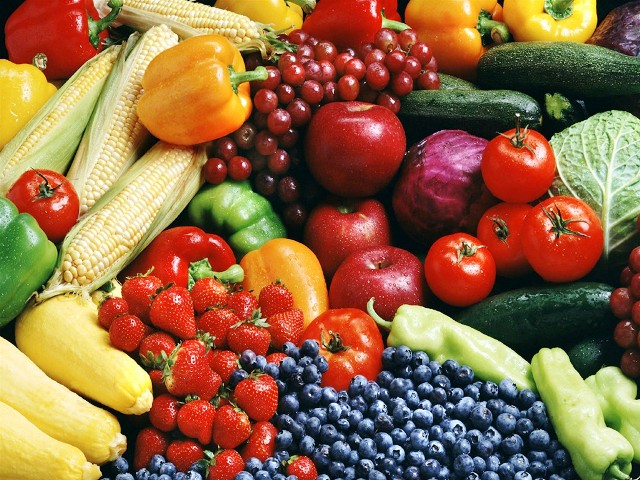Visionary Food
"One of the best things you can do for your eyes is to eat a balanced diet high in fruits and vegetables, but also low in saturated fats and sugar."
"Along with the vitamins, you should be sure to take in adequate amounts of the minerals zinc and selenium, both of which help protect the retina -- the light-sensitive part of the back of the eye. You also need some fatty acids -- usually from fish -- to ensure adequate moisture in your eyes."
Dr. Leland Carr, professor of optometry, Northeastern State University, Oklahoma
"Most people still think that carrots are the best food for our visual health, and while beta carotene does supply the retina with an essential form of vitamin A, it's not the super vision food we once thought [it to be]."
"With our eyes enduring more physical stress than ever before, they need a bountiful supply of power foods rich in antioxidants -- leafy green vegetables, acai and blueberries, and eggs, which contain zeaxanthin which helps prevent or slow age-related macular degeneration, a potentially blinding retinal disease."
"Eggs are also rich in lutein and zinc [along with] other macular-degeneration protectors. Fatty fish such as tuna, salmon and mackerel are packed with omega 3 and DHA, which are shown to promote healthy brain function, also [to] protect the back of our eyes and help [to] prevent dry-eye syndrome. I always tell my patients -- what's good for the brain is good for the eyes."
Dr. Kevin Anderson, chair, Cycle For Sight, Foundation Fighting Blindness, Markham, Ontario
"You can be proactive and help preserve your vision by adding such nutrients as lutein, zeaxanthin, vitamin C, vitamin E, beta carotene and zinc to your daily diet. By adding key foods that contain these nutrients into your daily diet, you can help maintain your eyes as you age. These are naturally occurring pigments that are found in the central part of the retina, and studies prove that antioxidants lower the risk of developing macular degeneration and cataracts. Collard greens, broccoli, corn and bright-coloured fruits like kiwis and grapes are great ways to get your fill of antioxidants as well."
"You don't need a lot as one handful [of almonds] contains half of your daily dose of E. Sunflower seeds, pecans, vegetable oil or adding a tablespoon of wheat germ oil to your salad dressing are also good sources."
Dr. Helen Brandenborg, doctor of optometry, Herzig Eye Institute, Toronto
 |
| wisegeek.com : anthocyanins and flavonoids provide the bright colors in certain fruits and vegetables |
We are a generation addicted to cellphones, smartphones, laptops, ereaders, with our eyes fixed on these devices continuously, both during our working hours and throughout our leisure hours. People nowadays, of all generations in society, no longer spend quality time in the out-of-doors, giving our eyes a rest from concentrated searching of the Internet. Where once television took up a lot of our leisure time, confining us to our homes and our comfy sofas, these days television too is viewed through our laptops and smartphones.
We are so busy we lose track of time. We are so engaged with our electronic devices that so many of our friendships take shape through social media, accessed on line. So many of us are so involved that we also become sleep-deprived because of shorter night-time breaks to sleep and refresh ourselves as nature intended us to do. We are less physically active and more inclined to remain physically inert as our minds and our eyes attach themselves relentlessly to smartphones which so many of us would never dream of leaving behind.
In the process we are straining our eyesight. It is one of our most precious senses. When we reach the age of 40, inevitable changes begin to take place and we strain to read fine print, eventually requiring the aid of magnifying lenses to guide our eyes. There are estimates that over 25 million people globally suffer the effects of age-related macular degeneration and cataracts. In many people, as they age, there is that debilitating progression of failing eyesight to mar our well-being.
With the knowledge that our focus on long working hours behind a computer and complementary focus on social media, while vital to our lives, also threaten our health, it makes sense to alter some elements of our lifestyle, notably the sedentary aspect of lack of physical exercise as we drive everywhere and seldom walk to any destination, preferring to take elevators over climbing stairs and missing out on opportunities to allocate a small part of the day to exercising or just simply walking around a neighbourhood.
And the other element that likely needs an upgrade is the realization that convenience and fast foods consumed on a regular basis do little to sustain physical health, all the more so as we age. Brightly coloured fruits and vegetables are not only attractive in appearance, but they are vital to good health and to sustaining oneself in good health, from youth to maturity and beyond. Squash, kale, colourful bell peppers, pumpkin, sweet potato, are superb sources of beta carotene, along with carrots.
Citrus fruits and soft berries, stuffed with vitamin C, proven to reduce the risk of developing macular degeneration and cataracts should be high on our list of foods to appreciate. Along with Brussels sprouts, broccoli, papaya and green peppers. Almonds are a terrific source of vitamin E shown by studies to help slow macular degeneration. What's more all of these foods take little preparation time, and taste good as well.
We just have to train our minds to be conscious of the need to consume them, and in the process appreciate them as healthful whole foods.
 |
| Tripatini, brightly coloured fruits and vegetables are known as 'superfoods' |
Labels: Bioscience, Diet, Health

0 Comments:
Post a Comment
<< Home